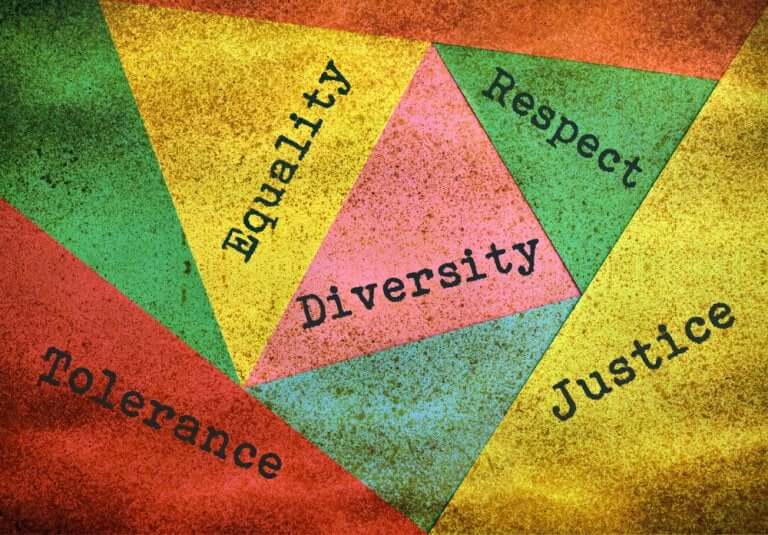The Importance of Social Skills in Children

In the real world, the importance of social skills in children offers a positive and open outlook towards their surroundings and the people around them. Teaching them to see themselves in a positive light is also important.
Psychology, when connected with neurosciences and behavioralism, ranks our intelligence on several types of skills and abilities. Learning these during childhood can improve their quality of life.
Learning these skills is the main aspect of theories about social skills and emotions. In other words, children learn by observing others, imitation, and continuous interactions. These skills will establish a child’s foundations of life.
Social skills in children link their social and emotional responses in regards to their environment. Working on these skills at an early age helps to build these skills that will become very important later on, especially in the conflictive teenage years.

Most important social skills in children
There are six classic categories. Likewise, these groups are conditioned by two types of attitudes: empathy and assertiveness.
- Basic social skills. These are the first skills the children learn and allow them to communicate, on a basic level. For instance, you can find: knowing how to start and maintain conversations, listening attentively, ask questions, being thankful, empathize, give praise.
- Advanced social skills. These come after the basic skills and encourage strategies to work in their surroundings. In other words, here you can find the ability to share an opinion, ask for help, apologize, participate, follow and give instructions, convincing people, etc.
- Affective social skills. They’re linked to the ability to define, identify and act on their feelings. It also implies being able to understand other people’s feelings, respect them, expressing their own, and encourage or console others.

Negotiations and tolerance
- Negotiation skills. These abilities can offer tools to avoid or resolve conflicts without violence. For example, sharing, asking for permission, helping, loving oneself, having the ability to self-control, tolerating jokes, etc. These also include defending themselves or avoiding problems altogether.
- Social skills to act under pressure. Stressful situations are part of our daily lives. For instance, knowing how to solve conflicts under pressure is part of this skillset.
- A well-managed feeling of shame, tolerance towards failure, accusations, the ability to face others, the ability to accuse or demand, of being persuaded and persuading others, tolerating being ignored or having a good attitude facing a confusing situation. In short, these are the main skills of tolerance.
- The ability to make plans. Making decisions, identifying the root of a problem and providing solutions. Setting goals, recognizing your abilities, informing yourself before making a decision, focusing on the task at hand, etc. These are some of the fundamental strategies of planning.

The current importance of social skills in children
Nowadays, children live in more complex social realities than what their parents went through. Social media and new technologies have changed the way we interact with others. Now, there are new codes and conducts to learn, which makes children more vulnerable.
The importance of social skills in children means protecting them from certain situations and scenarios they’re not ready for. On the other hand, being able to face and act on new and continuous challenges and stimuli, will make their lives richer.
Moreover, schools now start to evaluate and stimulate children to gain those social skills. In a way, assertiveness and empathy relate to self-esteem, on the one hand, and in their place in the world, on the other hand.
In short, teaching children social skills will give them the tools to enjoy and make the most of social interactions throughout their lives. Learning about their environment will help them respect themselves and others, and understand the rights and needs of themselves and others.
In the real world, the importance of social skills in children offers a positive and open outlook towards their surroundings and the people around them. Teaching them to see themselves in a positive light is also important.
Psychology, when connected with neurosciences and behavioralism, ranks our intelligence on several types of skills and abilities. Learning these during childhood can improve their quality of life.
Learning these skills is the main aspect of theories about social skills and emotions. In other words, children learn by observing others, imitation, and continuous interactions. These skills will establish a child’s foundations of life.
Social skills in children link their social and emotional responses in regards to their environment. Working on these skills at an early age helps to build these skills that will become very important later on, especially in the conflictive teenage years.

Most important social skills in children
There are six classic categories. Likewise, these groups are conditioned by two types of attitudes: empathy and assertiveness.
- Basic social skills. These are the first skills the children learn and allow them to communicate, on a basic level. For instance, you can find: knowing how to start and maintain conversations, listening attentively, ask questions, being thankful, empathize, give praise.
- Advanced social skills. These come after the basic skills and encourage strategies to work in their surroundings. In other words, here you can find the ability to share an opinion, ask for help, apologize, participate, follow and give instructions, convincing people, etc.
- Affective social skills. They’re linked to the ability to define, identify and act on their feelings. It also implies being able to understand other people’s feelings, respect them, expressing their own, and encourage or console others.

Negotiations and tolerance
- Negotiation skills. These abilities can offer tools to avoid or resolve conflicts without violence. For example, sharing, asking for permission, helping, loving oneself, having the ability to self-control, tolerating jokes, etc. These also include defending themselves or avoiding problems altogether.
- Social skills to act under pressure. Stressful situations are part of our daily lives. For instance, knowing how to solve conflicts under pressure is part of this skillset.
- A well-managed feeling of shame, tolerance towards failure, accusations, the ability to face others, the ability to accuse or demand, of being persuaded and persuading others, tolerating being ignored or having a good attitude facing a confusing situation. In short, these are the main skills of tolerance.
- The ability to make plans. Making decisions, identifying the root of a problem and providing solutions. Setting goals, recognizing your abilities, informing yourself before making a decision, focusing on the task at hand, etc. These are some of the fundamental strategies of planning.

The current importance of social skills in children
Nowadays, children live in more complex social realities than what their parents went through. Social media and new technologies have changed the way we interact with others. Now, there are new codes and conducts to learn, which makes children more vulnerable.
The importance of social skills in children means protecting them from certain situations and scenarios they’re not ready for. On the other hand, being able to face and act on new and continuous challenges and stimuli, will make their lives richer.
Moreover, schools now start to evaluate and stimulate children to gain those social skills. In a way, assertiveness and empathy relate to self-esteem, on the one hand, and in their place in the world, on the other hand.
In short, teaching children social skills will give them the tools to enjoy and make the most of social interactions throughout their lives. Learning about their environment will help them respect themselves and others, and understand the rights and needs of themselves and others.
All cited sources were thoroughly reviewed by our team to ensure their quality, reliability, currency, and validity. The bibliography of this article was considered reliable and of academic or scientific accuracy.
- Betina Lacunza, Ana; Contini de González, Norma. (2011). Las habilidades sociales en niños y adolescentes. Su importancia en la prevención de trastornos
psicopatológicos. Extraído de: https://www.redalyc.org/pdf/184/18424417009.pdf - Cristina González Correa. (2013). Las Habilidades Sociales y Emocionales en la infancia. Extraído de: https://rodin.uca.es/xmlui/bitstream/handle/10498/16715/Trabajo%20Final%20de%20Grado_Cristina%20Gonz%C3%A1lez%20Correa.pdf
- Monjas, M. I. (2000) Programa de Enseñanza de Habilidades de Interacción Social (PEHIS) para niños y niñas en edad escolar Madrid: Ciencias de la Educación Preescolar y Es- pecial CEPE
- Rogoff, B. (1993). Aprendices del pensamiento. El desarrollo cognitivo en el contexto social.Barcelona: Paidos
- Valencia, L. I., & López, G. C. H. (2010). El desempeño en habilidades sociales en niños, de dos y tres años de edad, y su relación con los estilos de interacción parental. Electronic Journal of Research in Educational Psychology, 8(3), 1051-1076. https://www.redalyc.org/pdf/2931/293122000007.pdf
- Vigotsky, L. (1979). El desarrollo de los procesos psicológicos superiores. Barcelona: Grijal- bo
This text is provided for informational purposes only and does not replace consultation with a professional. If in doubt, consult your specialist.








